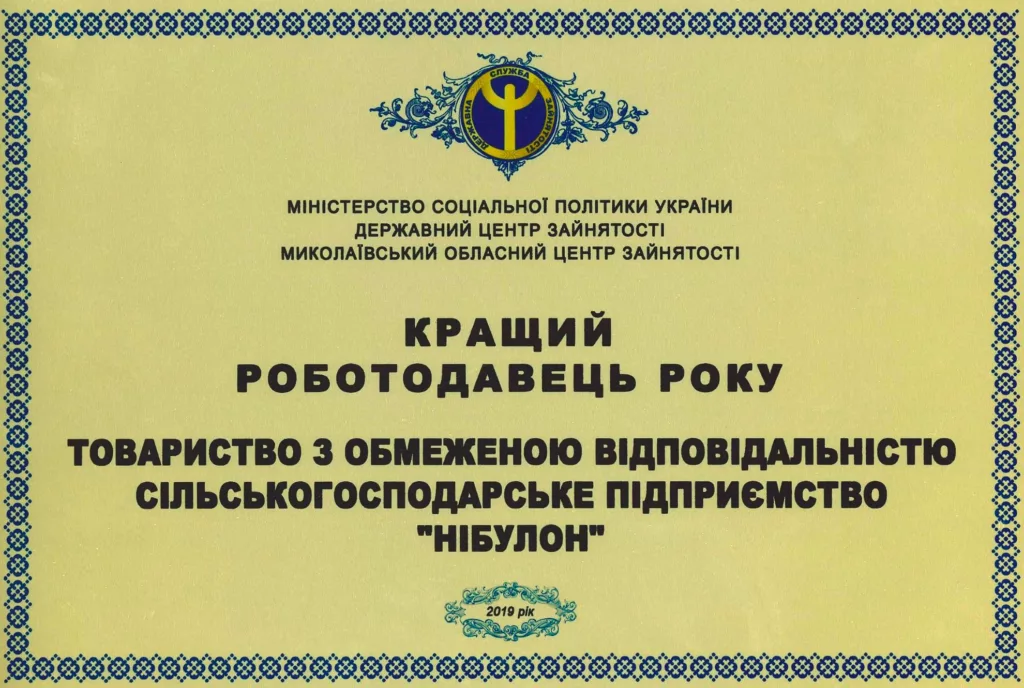As it was previously reported, on the 27th of January, in Kyiv roundtable meeting “Development of a Dialog in the Grain Sector and Prospects for Investment” was held, it was organized by the European Bank for Reconstruction and Development and the Ministry ofAgricultural Policy and Food of Ukraine. About 100 of representatives of leading companies of Ukrainian grain market, representatives of the EBRD, the World Bank, IMF, FAO Investment Centre, which is a key supplier of tools for agro-industrial sector, took part in the event. We are bringing to your notice an interview with the World Bank Director for Ukraine, Belarus and Moldova Martin Raiser, to the newspaper “Economic news”: Turbulence caused by inflation in food prices is increasing worldwide. As soon as demand increases, investors and policymakers pay attention to the major countries exporting food products. Ukraine is one of them. However, instead of benefiting from high prices and assisting in increasing in earnings of farm incomes, encouraging investment and increasing productivity, Ukraine abruptly slammed on the brakes, introducing quotas on grain export in order to protect domestic prices from development of the situation on world market. Such a policy is inefficient, unproductive and risky. It is inefficient, because quotas create perverse incentives for farmers. They keep the grain, it is spoilt, as a consequence domestic prices are rising. Quotas also reduce incentives to invest, thus maintaining high prices. Such a policy is nonproductive, because the procedure of allocation of quotas is not transparent, which discourages private investors to invest into the development of the material and technical foundation network of grain supply. This policy is risky, because if grain producers around the world restricted exports to protect domestic consumers, a speculative price bubble could be formed that would burst, causing damage to everybody, including Ukrainian consumers. Therefore, prompt cancelling of quotas meets the interest of Ukraine and consumers of grain worldwide. This step is also consistent with the political commitments of the presidential reform program for 2010-2014. There was no reason in Ukraine for introduction of quotas. The grain harvest in 2010 exceeded 38 million metric tons (mt) that is significantly more than the average harvest over the past ten years. If you subtract the amount of grain needed to meet domestic demand (excluding reserves), then there remains a surplus of about 15,6 million mt for export. Around 4,9 million mt were exported until August, when restrictions were imposed; established quota till March inclusive compiles generally 4,2 million mt, i.e. there is about 6,5 million mt of grain surplus. Thus, the introduction of quotas is difficult to justify by the considerations of food security, as required by WTO rules. Surplus of domestic supplies lowers prices in the domestic market. However, the effect of such surplus is limited, and expenses incurred by producers far exceed any other benefits. Firstly, several traders have stopped buying because of the lack of export opportunities, and since the storage conditions do not meet the necessary requirements, there is a risk that the grain will not be used properly. Secondly, the actions of Ukraine contributed to the growth of concerns about grain supply worldwide, and may have inadvertently led to the global rise in prices above the level at which they could be if Ukraine acted differently. Thirdly, export quotas tend to establish incentives that fall short from the real situation for producers, traders and related to the grinding of grain companies, which are accumulating grain in anticipation of cancelling of restrictions to avoid losses or realize profits from sales. This weakens the softening action on prices, but there have been higher prices for grain in Ukraine, than in many neighboring countries, despite the quotas. Fourthly, the loss of grain producers will reduce their working capital and profitability that can adversely affect on next year’s crop. Revenue loss could reach nearly USD 2 billion in 2010. When grain quotas were cancelled during the last global rise in food prices in 2008, investments in agriculture of Ukraine were increased, despite the financial crisis. Now, when the world economy is recovering, Ukraine is losing on potential investments because of wrong policy. Here are the risks connected with any system of quotas. That is why the World Bank, in general, does not recommend the introduction of quotas for export. Protection of domestic consumers is best achieved through direct social benefits, prices in the domestic markets are stabilized through investment in the structure of the processing and delivery and logistics in the best way, as well as improving information systems about stocks and prices affordable to all customers and sellers. However, the quota system in the form in which it is administratively introduced today, makes the country additional negative effects due to non-transparency. Information from the private sector states that the most important documentation such as acknowledgement of certified stocks by the Ministry of Agrarian Policy and Food was sent to elected traders with delays, limiting an opportunity to apply for the allocation of quotas and to receive them. This damages the reputation of Ukraine at a time when the country is trying to attract foreign investors to speed up the recovery of its economy, and contrary to the increased commitments undertaken by Ukraine’s leadership in the fight against corruption. Export quotas were accompanied by new procedures of clearance of customs formalities, which require additional quality checks, which led to the detainment of vessels that were already loaded with grain in Ukrainian ports, even before the introduction of quotas. As a result, huge quantities of grain are spoilt in the port buildings, railway cars and other places where storage facilities do not meet the necessary requirements. In addition, in the Internal Revenue Code, taxes on grain exports are imposed without VAT recovery to exporters, reducing the incomes of domestic producers and at the same time dramatically expanding trade opportunities for a vertically integrated trading and manufacturing companies. This is connected with a risk of further reduction of income of the rural population despite the stated objectives of government policy. In conclusion. Recently, the Cabinet of Ministers introduced the registration of export contracts in the state agricultural stock exchange – with obviously small benefits for individual producers and traders and the potential risk of additional transaction costs for them. The agricultural sector of Ukraine and its grassroots processing industries have huge potential for a significant increase in growth rates. However, the sector requires the introduction of new technologies, coordinated with other countries technical standards, development of logistics and carrying out of risk free economic policy. Cancelling of grain quotas would be a signal to both producers and investors that Ukraine is ready to realize their potential and play a responsible role in the global economy. Country should not miss this opportunity.

